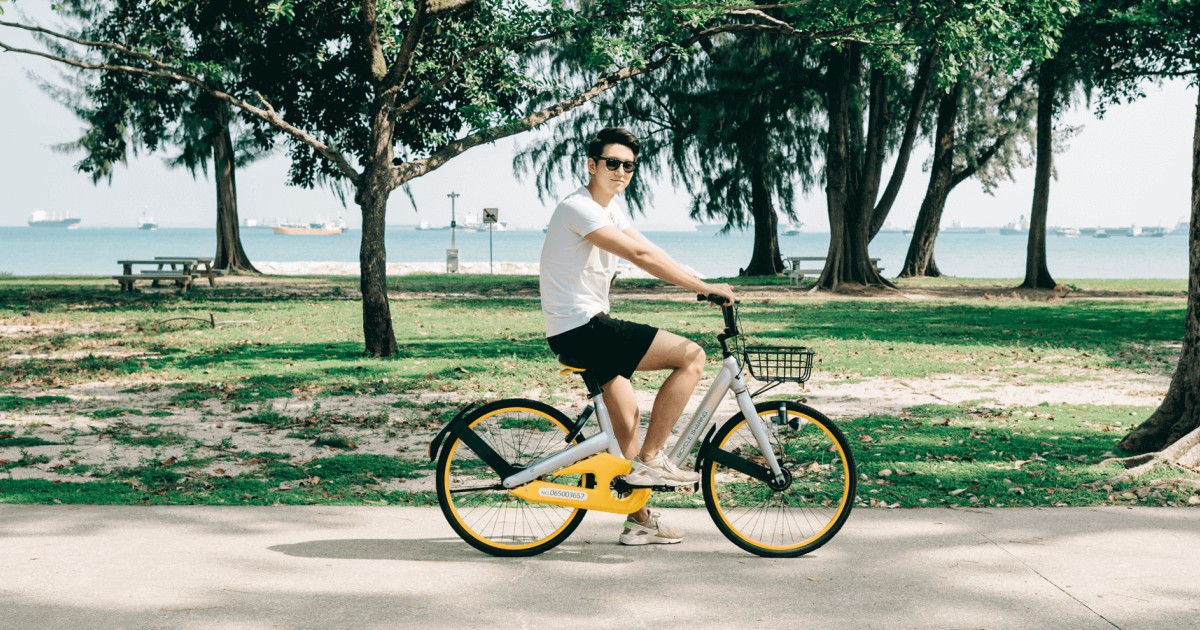Singapore’s car-lite nation shift is a project in the making and by all means, it is a successful one.
Expensive car costs aside, Car-free Sundays, the increased use of personal mobility devices and cycling paths shows that not every Singapore is interested in using a car.
And if you’ve yet to hear, there’s a new cycling path connecting the CBD that’ll soon be unveiled – the Bencoolen Street path.
According to Channel NewsAsia, vehicle lanes will be converted into sidewalks, while Coleman and Armenian Street will see dual walking and cycling lanes. Meanwhile, the total distance of cycling paths is expected to double to 480km by 2030.
For bicycle startups, the nation’s move towards being car-lite is a win. But their troubles are far from over.
Cycling Into A Car-Lite Nation
First there was Beijing’s ofo, then Singapore’s oBike followed by Mobike, who also pedalled its way here from Beijing.
All 3 are good options to consider, although oBike sees a price and ease of return advantage.
From a fiscal point of view, these startups are also doing very well. To date, Mobike has raised more than $400 million, and Ofo over $620 million. And although oBike’s Elgin Ee declined to divulge funding, it’s clear they’re on sound ground.
The Singapore startup recently moved into Klang Valley, Malaysia (seizing a first mover advantage) and Taitung City, Taiwan.
As the competition heats up amongst these 3 firms, it’s possible that new players enter the field, although it remains to be seen if the local market is populous enough.
Is Singapore Even Ready?
Ever since they arrived, bike sharing startups have seen a string of problems. From hogging, to spray-painting, to outright destruction of the bikes, it’s clear that not everyone is warming to the concept of bike sharing.
Meanwhile, irresponsible cyclists and street-blind pedestrians still remain a problem ensuring pedestrian safety, because from netizen comments, not everyone paints a rosy picture of the new route.

To address these issues, local firm oBike even has their own roving technicians – on-the-go staff who go around fixing damaged bicycles.
According to technician Mr. Jefri Johari, he fixes between 30-50 bicycles everyday, and sometimes is even mistaken as a thief while doing so. Although there are only a few technicians as of the moment, Ee reveals that they plan to boost that as the startup grows.
Meanwhile, it’s unclear if the other 2 startups employ roving technicians.
However, the onus is not just on the startups. If the government plans to advance the move towards a car-lite nation, its infrastructure must be able to keep up.
Disruptors Of The Bike Rental Industry
Parking docks are one of the more expensive issues to built, but it is a crucial one nonetheless.
Indiscriminately-parked bicycles are not just causing inconvenience for pedestrians and HDB residents, but established bike rental shops are also seeing red.
Just like how Uber and Grab disrupted the taxi industry, bike sharing startups are doing the same for the bike rental shops you typically find at parks. Bicycles here are typically rented out at $6-$7 per hour, compared to the 50 cents one pays for an ofo or oBike.
The fact that these newcomer bicycles can also be found at parks does not make it easier for the shops as well, who have to bear heavy costs from space rental and tenders to operate in the parks.

According to Mr. Adrian Koh of Coastline Leisure, “it’s unfair because they are using public facilities for profit and they don’t have to pay rent.”
According to the law, these startups are not supposed to be found at parks. A spokesperson addressed this issue saying that this was only temporary. They were left there only because they had just been unloaded, and would be moved at the earliest convenience.
A statement that can be used rather liberally, I might add.
The LTA notes that they are currently monitoring the situation, with possible collaboration between rental shops and bicycle startups to “promote greater take-up of cycling.”
If this really happens, it might just bring a about a win-win for both the shops and startups.
In any case, the future of a car-lite Singapore is not one we can achieve easily. Just like the taxi-Uber-Grab conundrums, a decisive conclusion has yet to appear on the horizon.
Featured Image Credit: o.bike








